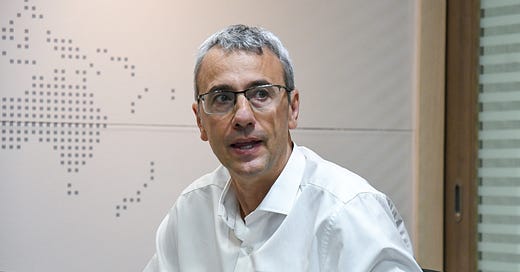Road to 2027: Thailand look to re-emerge out of the shadows
At one stage, things looked to be going in the right direction for Thailand, but now they're in the middle of a hard reset which may take years to fix...
There are many nations who can tell tales of woe to joy in women’s football, but there are also too many who can tell of joy to woe, and Thailand is one of them having endured a tumultuous four years since appearing at the 2019 World Cup.
At one point, all looked rosy in their little pocket of Southeast Asia. Thailand qualified for the World Cup for the first time in 2015 and backed it up with a win against Ivory Coast, finishing a respectable third in their group.
They doubled up by reaching 2019, albeit on both occasions somewhat aided by North Korea being excluded in 2015 and then a lower ranking thrusting them into a tie with South Korea four years later, but through talent and hard work, Thailand earned their shot, they even drew 2-2 with Australia in the build-up to the tournament.
During the 2019 tournament, their benefactor, Nualphan Lamsam – more commonly known as Madam Pang – became well-known for her iconic tears of joy after the team’s goal against Sweden off the back of worldwide fame for all the wrong reasons after a 13-0 thrashing at the hands of the USA.
Lamsam, CEO of one of Thailand’s largest insurance companies and one of the richest women in the country, poured finances into the women’s programme to ensure the team could and would thrive, even employing national team players to work for her company so she could grant them the right leave for national team camps and ensure there were few crossovers.
But things haven’t been smooth since. Lamsam took over the running of the men’s team and funding to the women’s team didn’t evaporate, but it was nothing like before. A new head coach, Miyo Okamoto from Japan, was hired in 2021 but drew criticism for performances at last year’s Asia Cup which saw Thailand win just one game and lose 7-0 to Japan in the quarter-finals.
It meant no automatic spot for the World Cup, and after two defeats to Vietnam and Chinese Taipei without scoring a single goal, no route through the Asian play-offs either, which leaves them facing Cameroon on Saturday in New Zealand for a final hope of a third successive World Cup, and even if they do, Portugal still stand in their way.
The man at the heart of trying to fix the pathway to success in Thailand, for both men and women, is Spaniard Carles Romagosa, who was employed as the Technical Director of the federation back in June 2019.
Check out more in-depth unique stories in WFC’s Premium section, available for just £45 for 12 months, paid in one go, or a £6 a month rolling subscription.
All subscriptions come with a 7-day free trial to allow you to explore our full archive.
Plus, guarantee you everything that is to come over the next 12 months…
But just over six months after his arrival, the man who had been the Sporting Director of PSG’s academy and a similar role at Barcelona where he worked with Gerard Pique, Jordi Alba and Cesc Fabregas, was thrust into a global pandemic, which hit Thailand more than most, so much so many of their key players missed the Asia Cup, contributing to their downfall.
He says putting programmes in place is “more complicated here than in Europe” because they have to wait on the budget to be set by the Thai Government for sport, including women’s football, every January.
That has now passed and with this January being the first settled January since the pandemic started, Romagosa can get on with the job he started four years ago, but is well aware the nation has lost precious time, as well as falling behind its rivals.
“I arrived with a lot of ideas, but the pandemic made it a very difficult period,” he admits. “But in Thailand, it was a good chance to look at different programmes that we didn’t have before and prepare documentations for the AFC and FIFA.
“It was a period to change some of our staff, we’re on a good schedule in terms of our programme implementation because we have had time. On a daily basis, you don’t usually have time, but during COVID-19 we prepared our curriculum, our football analysis in Thailand and we applied for most of the projects FIFA offers. It was an interesting period.”
Keep reading with a 7-day free trial
Subscribe to Women's Football Chronicles to keep reading this post and get 7 days of free access to the full post archives.




